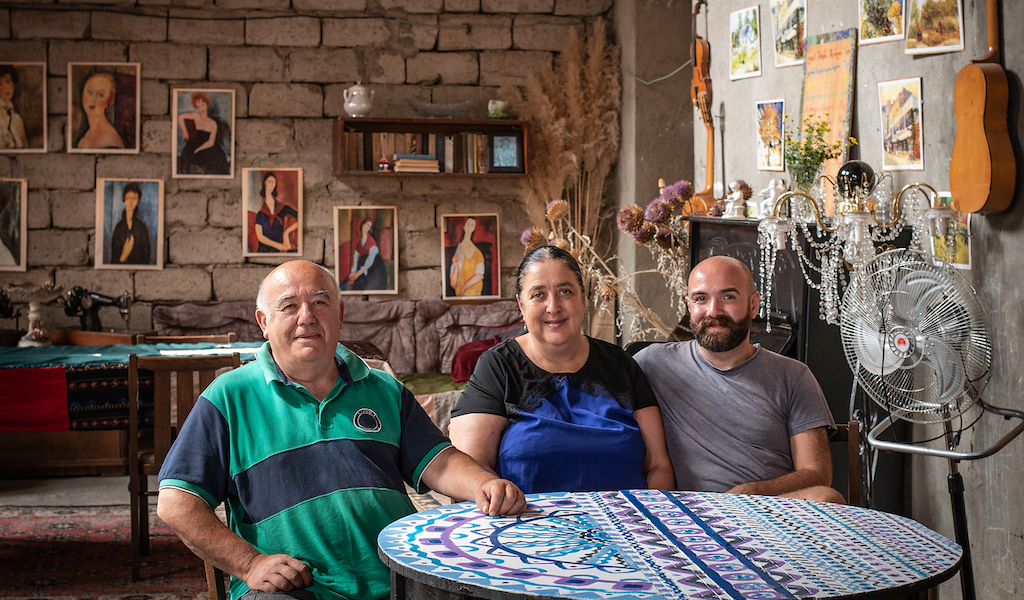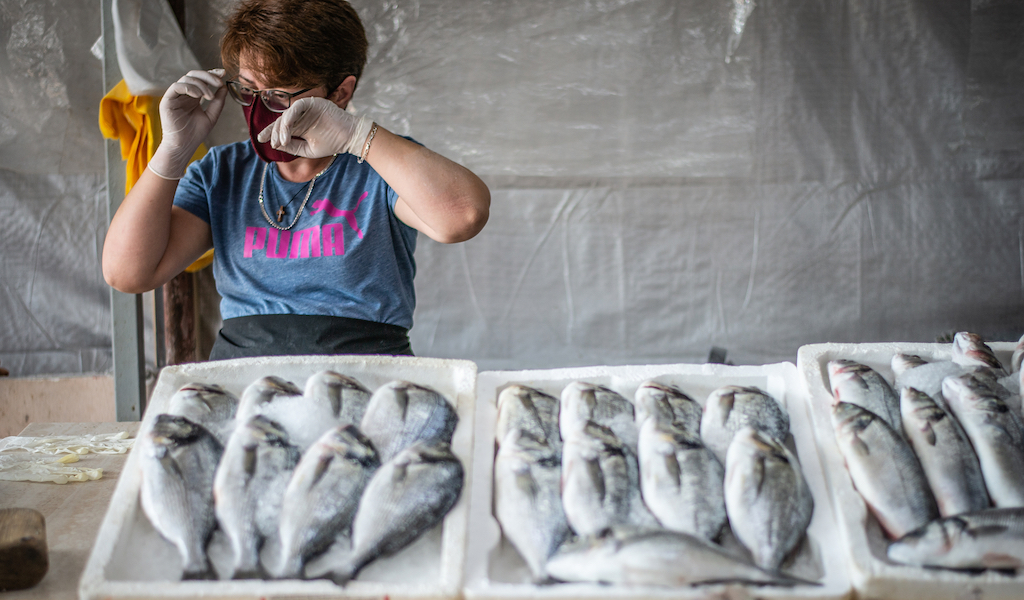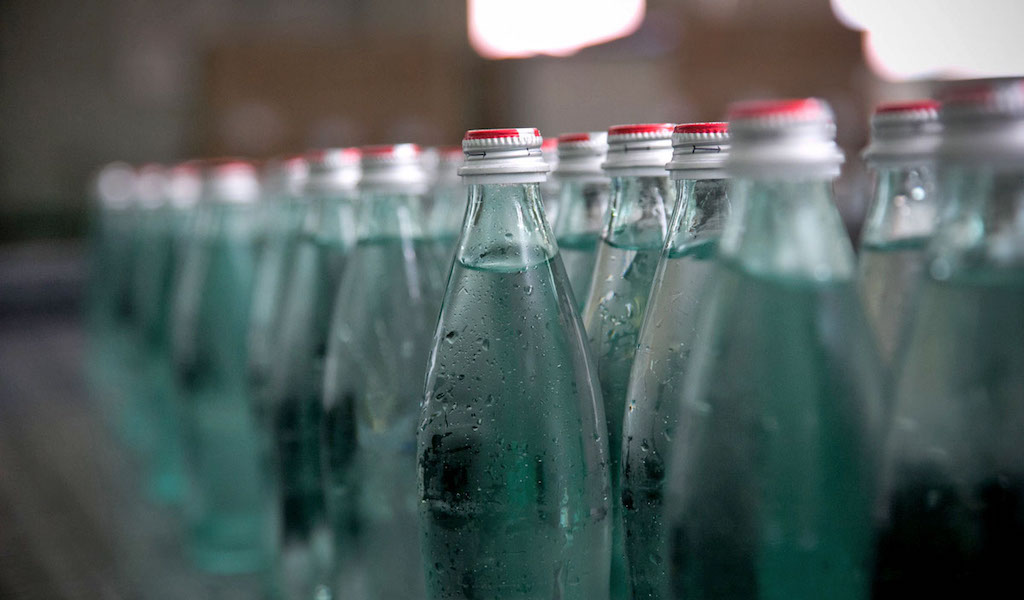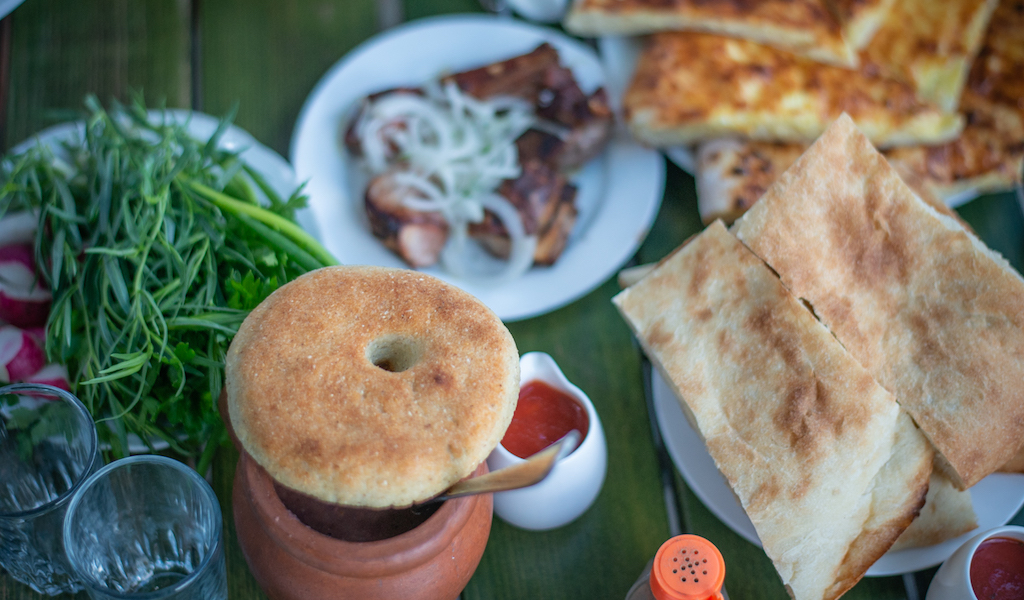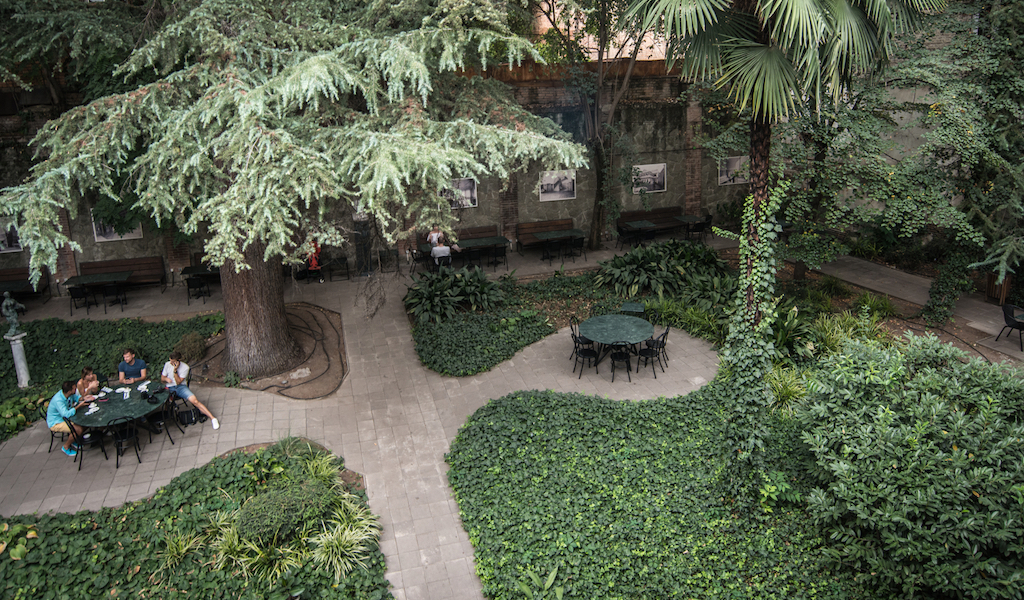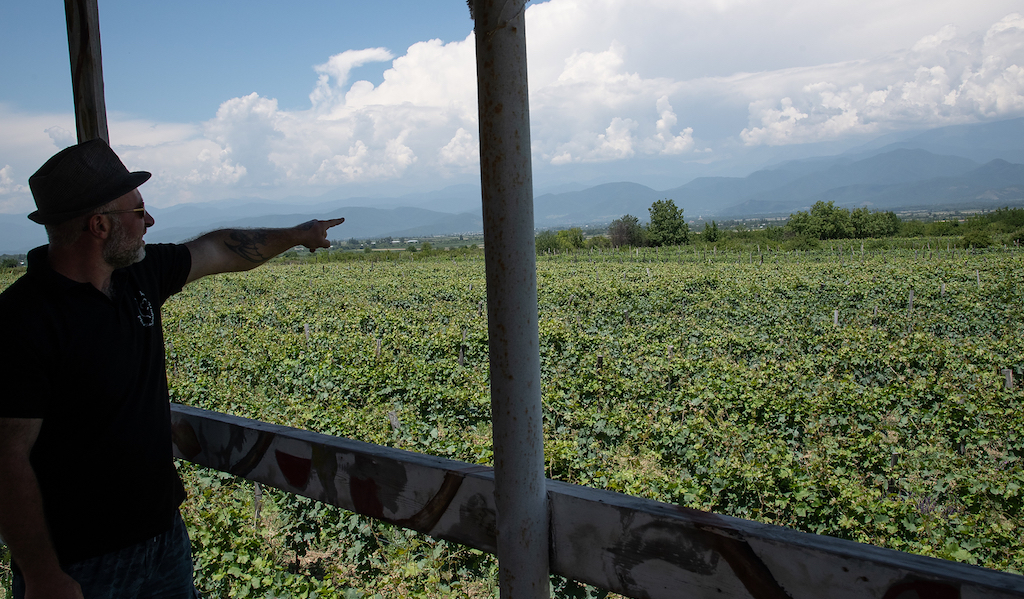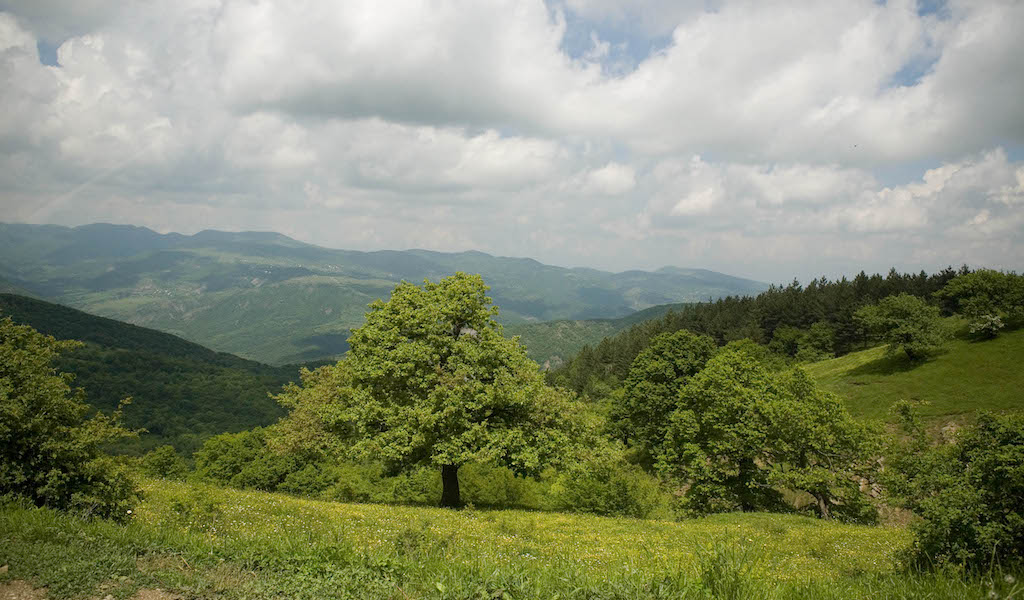We can't find the internet
Attempting to reconnect
Something went wrong!
Hang in there while we get back on track
Search results for "Paul Rimple"
Tbilisi
CB on the Road: Lia Deida, Everyone’s Favorite Aunt
We pull off the recently finished section of highway at the Argveta exit in Imereti, follow Google Maps to a hand-painted sign directing us along a bumpy lane to an open iron gate with painted flowers, and park our car as if we live here. The front yard is lush with fruit trees, children’s toys are neatly scattered about, and a hammock under the shade of a large walnut invites us to lounge next to an enormous stone table. Before we sit here and never get up, Giorgi Zhorzhorladze steps out of his neat two-story house trimmed in red bricks, greets us with a warm “Gamarjoba!” (“Hello there!”) and welcomes us inside, to another realm.
Read moreTbilisi
CB on the Road: The Batumi Fish Market, A Sole Survivor
In 2013, Anthony Bourdain and the Parts Unknown team arrived in Batumi, the capital of Adjara, to shoot the first segment of their Georgian adventure. The show’s producers invited Zamir Gotta, a Russian sidekick unfamiliar with the city, to join him. They visited a casino, strip club and mediocre restaurant for khashi, tripe soup, which failed to impress Bourdain. When the episode aired, local social media users flamed with disappointment over the Batumi portion in particular: “Casinos and strip clubs! That’s not Batumi!” While they aren’t the places we would have taken Anthony Bourdain, they are most certainly Batumi, along with the rainy summers and stifling subtropic air, the new five-star hotels and crumbling Khrushchyovkas (Soviet apartment buildings), a McDonald’s housed in an award-winning modern structure and a chacha-spouting fountain that dried up shortly after it was built in 2012.
Read moreTbilisi
Liquid Assets: Borjomi Mineral Water, Georgia’s Iconic Elixir
It was a scorcher of a summer day in 2002, and we were pushing our broken Russian motorcycle and sidecar through crowded Plekhanov streets with a gnarly case of cotton mouth. Dripping in sweat, we limped up to the kiosk by our building and slipped some coins to the lovely Irma for a lifesaving cold bottle of Borjomi mineral water. She reached into her little fridge and passed a bottle to our trembling hands. We twisted it open, took a deep three-gulp pull and grabbed our neck in a panic, alcoholic vapors steaming from every pore of our body. Gasping, we handed the bottle back to her. “This is not Borjomi,” we wheezed. She sniffed it and jumped back. “Oh sorry. That is my husband’s spiritus,” she explained, replacing it deep into the fridge with a real bottle after checking it first.
Read moreTbilisi
Salobie: Back to Beans
We met Tega at a friend’s dinner table shortly after moving to Tbilisi in 2002. Tall, debonair, with dark puppy eyes and an ever-present Colgate smile, Tega made it a point from that first meeting to take us under his wing and introduce us to the best Tbilisi had to offer. That was how we first ended up at Salobie, near the ancient capital of Mtskheta. “This place is famous for its beans,” he said. “And its name is Beans!” he chortled (lobio means “beans” in Georgian, and salobie is “house of beans”). The restaurant felt like something between a museum and a summer mountain resort. We were in the original dining room, built next to a giant 300-year-old wooden house from Racha.
Read moreTbilisi
Notes on Reopening: A Slow Restart for Tbilisi’s Restaurants
Last week we stopped at Prego, a Georgian-owned Italian restaurant, for an extra-large pizza paradiso, a delicate thin crust brushed with a light tomato sauce and baked, then topped with thin slices of ham, fresh tomatoes and shredded lettuce, and sprinkled with fresh parmesan. For summer, there isn’t a more refreshing pizza pie. We were the only seated customers and had to wait around 30 minutes for the kitchen to finish an enormous two-scooter delivery order. We might have grumbled had this not been July 2020, when a global pandemic has every restaurant owner in the country gnawing their fingernails to stubs. We were happy to see that our favorite place for pizza was serving at all.
Read moreTbilisi
Kakheti Diary: A Popular Wine Region Sans Foreign Tourists
Georgia had planned to open its borders to tourists on July 1, and we had intended to do some wine tasting in Kakheti about the same time – two plans that failed utterly. While no one is really sure why Georgia spent weeks preparing us for an open border only to snuff the plan at the last minute, our plan fizzled because we could not find a designated driver. But we still had a holiday. We stayed at Vazisubani Estate, a 19th-century palace that belonged to Sulkhan Chavchavadze, a nobleman with a penchant for winemaking and 20 hectares of vineyards, which became victims of a history that included the Romanovs, as well as the Soviets.
Read moreTbilisi
Picnic Week 2020: Tbilisi
Editor’s note: As summer heats up, we’re looking to get outside. So we asked our contributors to write about their favorite spots to eat outdoors as well as nearby shops to fill a picnic basket for Picnic Week 2020. The greatest picnic in my life was at an elevation of 6,100 feet in the Tushetian village of Omalo for Mariamoba, Assumption Day, 2001. Sheep were escorted three times around the local chapel before being slaughtered in a ritualistic “sacrifice,” then butchered into chunks and boiled in a cauldron for khashlama, a type of stew, and ground into khinkali meat. Toast after toast of wine and chacha brought from the Kakheti lowlands made for the greatest bacchanalia in the name of the Virgin Mary, ever. In the morning, bodies littered the meadow, fetal and sprawled, where their last stumbling steps dropped them on their way home like sacks of boneless flesh.
Read more